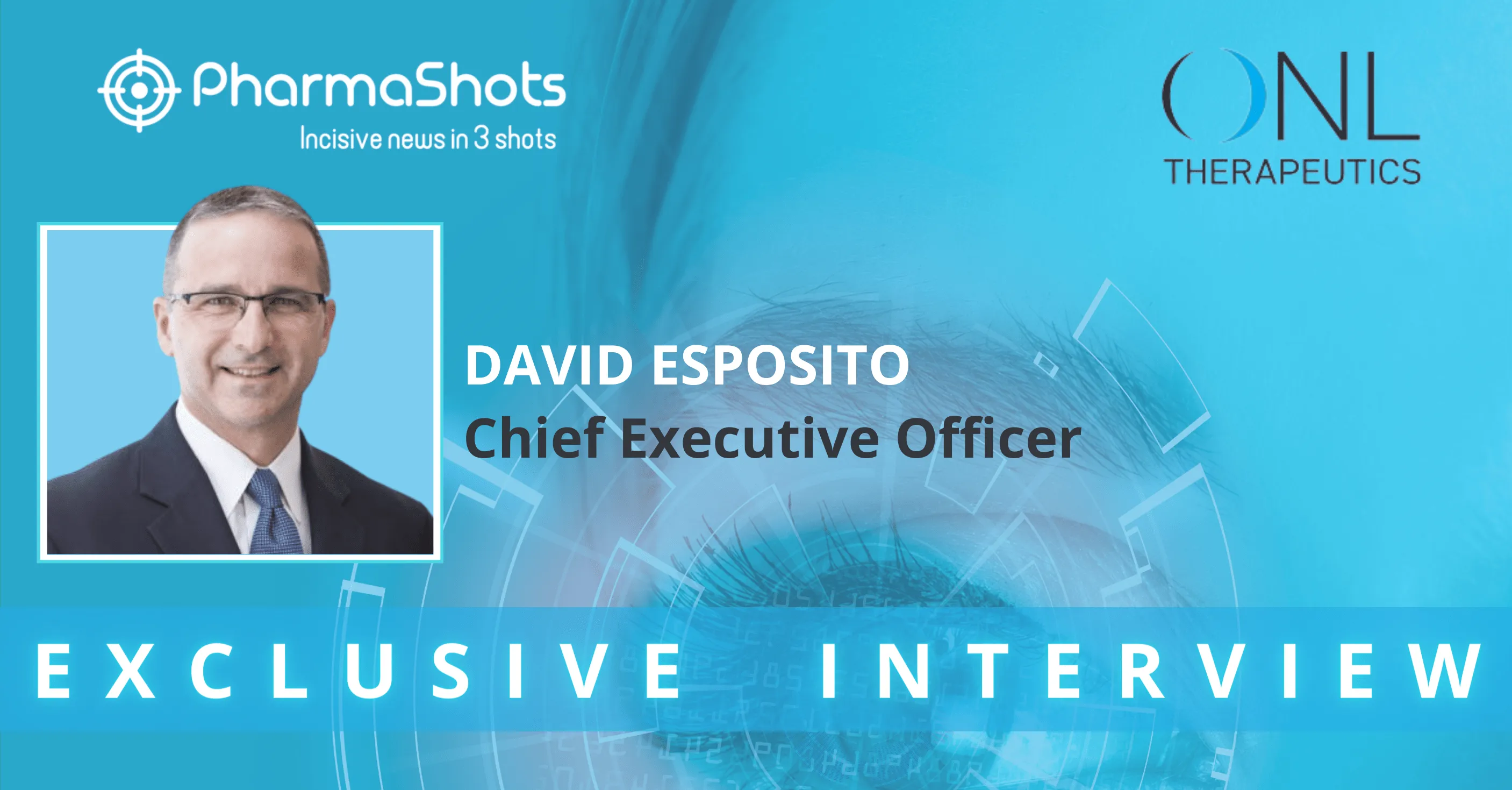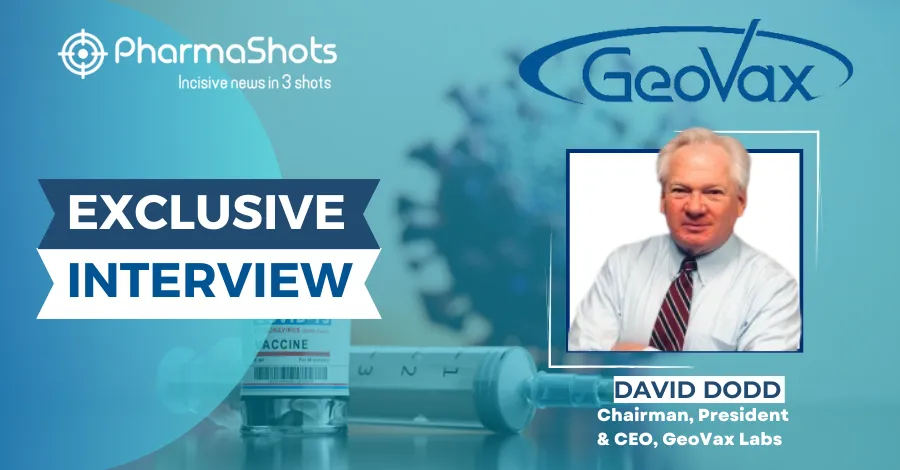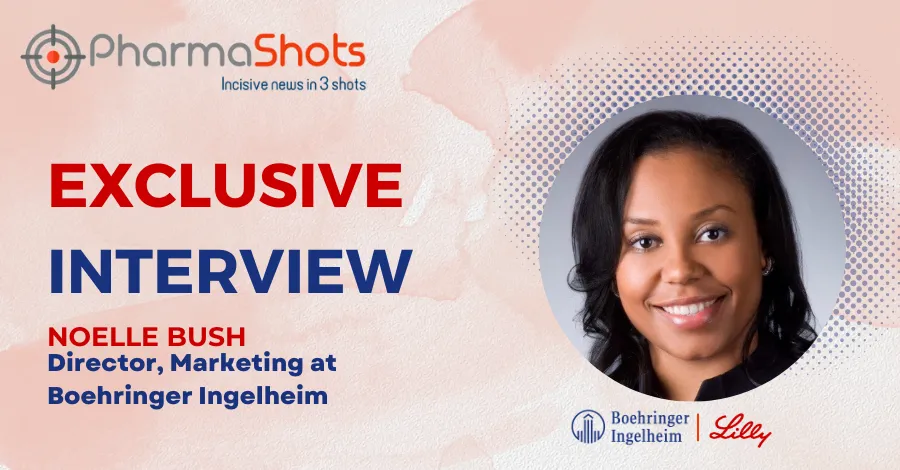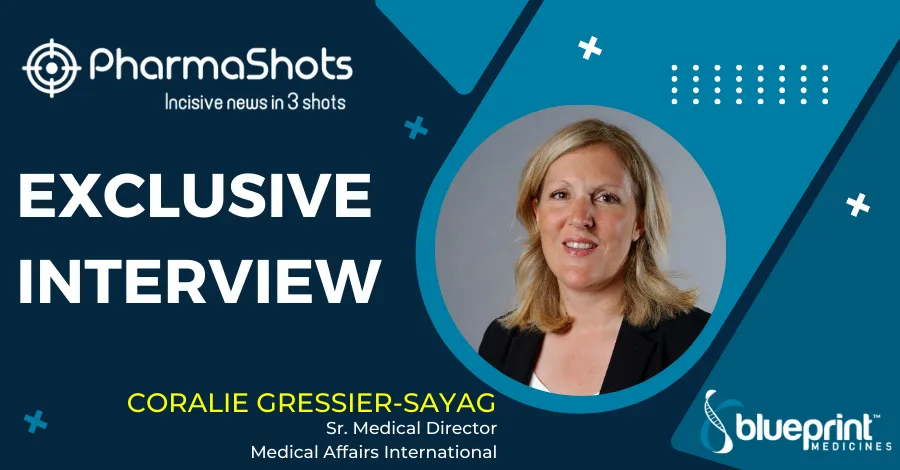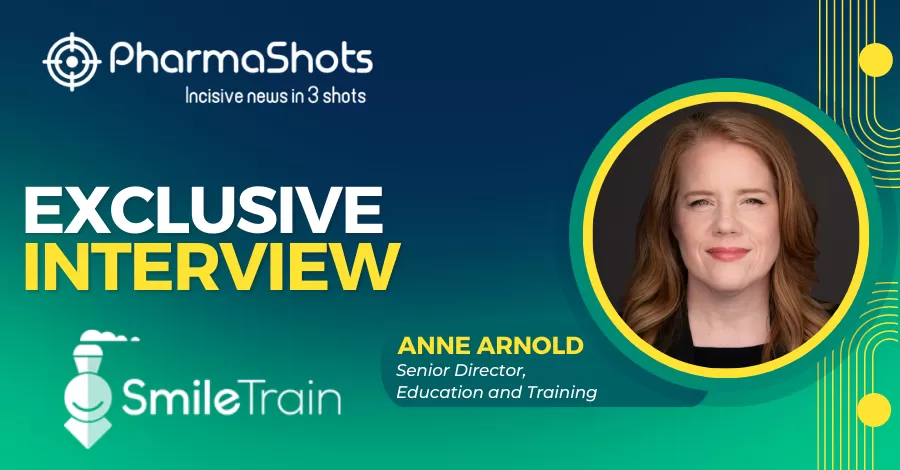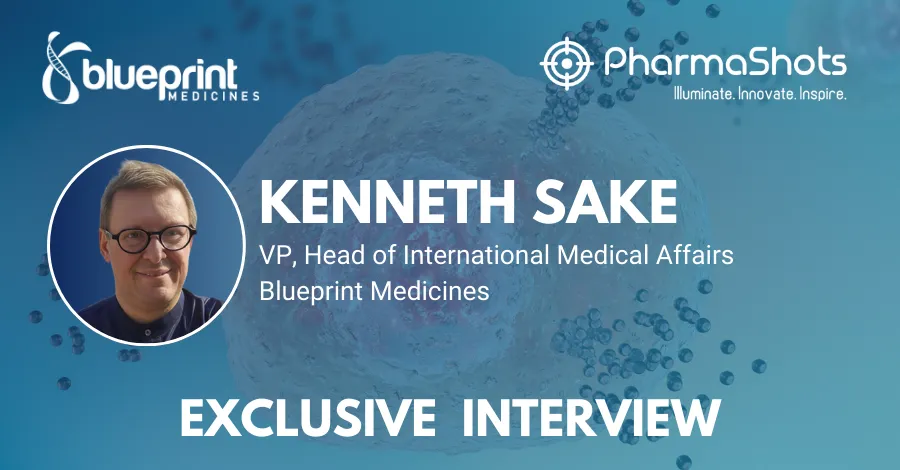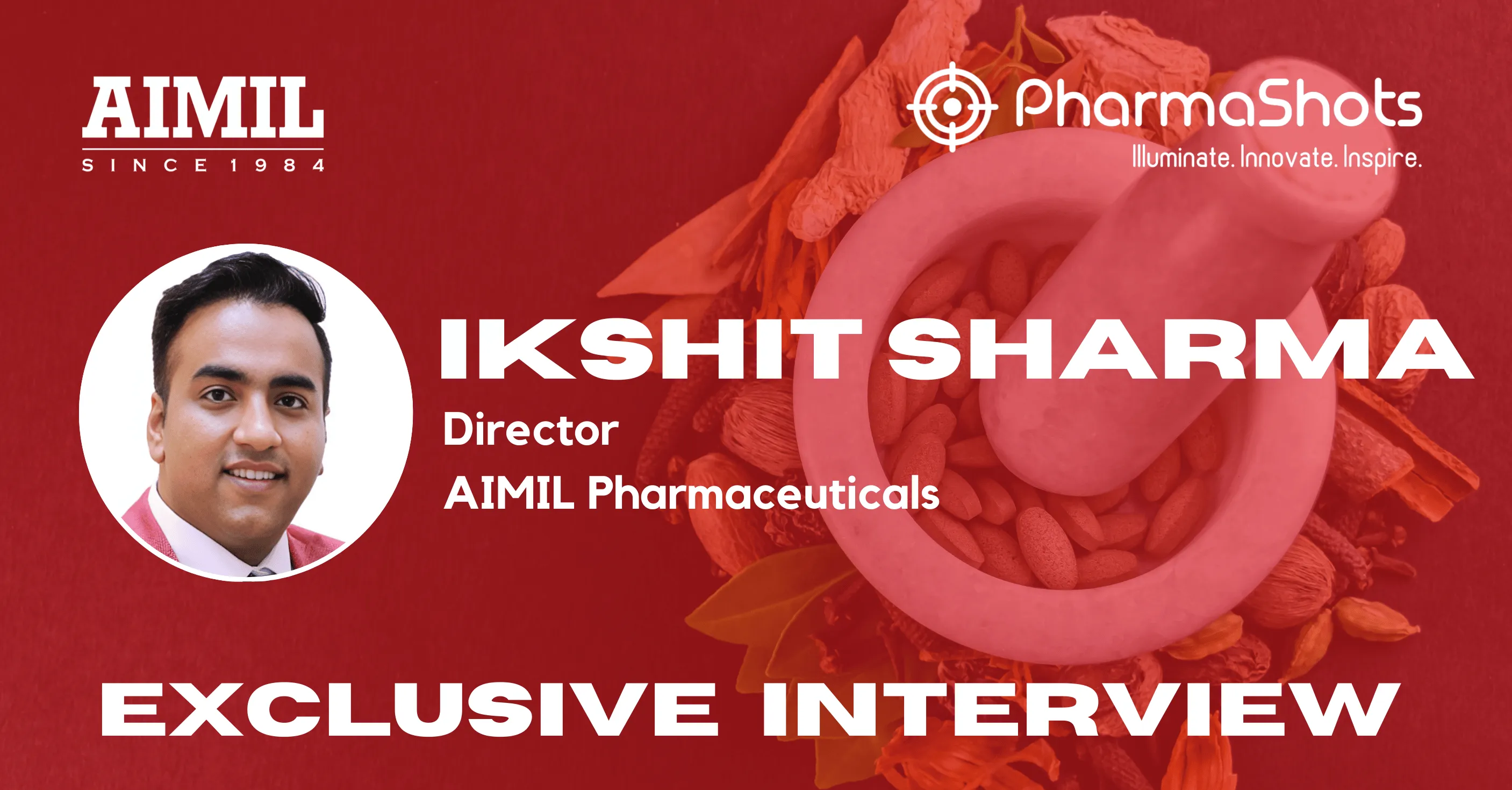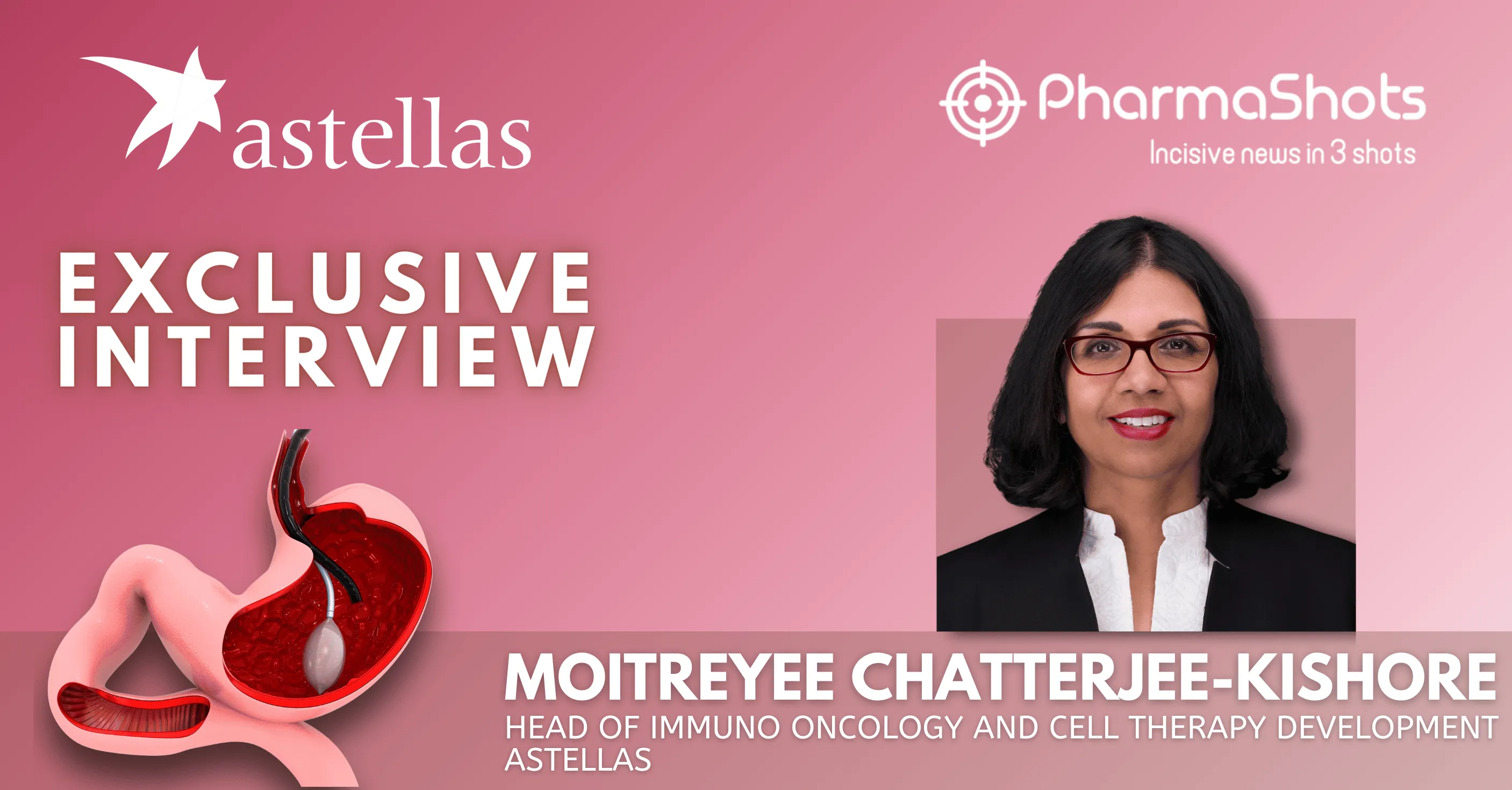
Advancing Urothelial Carcinoma Care: Ahsan Arozullah from Astellas Pharma in an Exclusive Interview with PharmaShots
Shots:
-
Recently, the CHMP of the EMA adopted a positive opinion for Astellas’ Padcev + Keytruda combination therapy as the first-line treatment of patients with unresectable or metastatic urothelial cancer
-
Today, in an exclusive coverage, we bring an enlightening conversation with Ahsan Arozullah from Astellas Pharma, sharing insights from the P-III EV-302 study
-
Astellas looks forward to exploring the potential of Padcev in the treatment of other solid tumor types, incl. breast cancer, NSCLC, gastroesophageal cancer, and SCCHN
Saurabh: What key benefits does enfortumab vedotin with pembrolizumab offer compared to the current standard of care with platinum-containing chemotherapy?
Ahsan: Platinum-containing chemotherapy has been the standard of care for the first-line treatment of advanced urothelial cancer for decades, however many patients are ineligible due to impaired renal function and other comorbidities. Even with treatment, five-year survival rates remain poor driving the urgent need for new therapeutic options that improve outcomes and extend lives.
Enfortumab vedotin and pembrolizumab have both demonstrated a survival benefit in patients previously treated with locally advanced or metastatic urothelial cancer. When used together as first-line therapy in the Phase 3 EV-302 clinical trial, the combination treatment nearly doubled overall survival (OS) and progression-free survival (PFS) compared to platinum-containing chemotherapy. This is the first regimen for advanced urothelial cancer to demonstrate superiority to platinum-containing chemotherapy, helping to extend patients’ lives.
Saurabh: How do the findings from the Phase 3 EV-302 clinical trial influence the approach to first-line treatment for patients with unresectable or metastatic urothelial cancer?
Ahsan: Until now, eligibility for treatment with cisplatin had been a key consideration for clinicians when evaluating different therapeutic options for patients with unresectable locally advanced or metastatic urothelial cancer. The results of the EV-302 trial have resulted in a fundamental shift in treatment approach, with enfortumab vedotin in combination with pembrolizumab demonstrating efficacy regardless of a patient’s eligibility for cisplatin.
The combination regimen was approved in December 2023 in the U.S. and is the only National Comprehensive Cancer Network (NCCN) Category 1 preferred first-line treatment option across cisplatin-eligible and cisplatin-ineligible patients with unresectable locally advanced or metastatic urothelial cancer.
Based on the positive results from the EV-302 trial, both the European Society for Medical Oncology and the European Association of Urology have similarly updated their clinical guidelines to recommend enfortumab vedotin in combination with pembrolizumab as the standard of care for first-line treatment of advanced or metastatic urothelial cancer.
Following approval by the European Commission on August 27, the combination therapy will be made available to clinicians for the first-line treatment of adult patients with unresectable or metastatic urothelial cancer, who are eligible for platinum-containing chemotherapy. This will enable patients across the European Union to gain benefit from enfortumab vedotin in combination with pembrolizumab earlier in their treatment journey.
Saurabh: Could you give us more details on the median overall survival and progression-free survival results from the EV-302 trial?
Ahsan: Results from the EV-302 clinical trial (also known as KEYNOTE-A39) showed that eligible patients treated with enfortumab vedotin in combination with pembrolizumab lived twice as long as patients treated with platinum-containing chemotherapy (median OS of 31.5 months [95% CI: 25.4-NR] vs. 16.1 months [95% CI: 13.9-18.3]). Patients were also 55% less likely for their urothelial cancer to progress or for the cancer to claim their life (median PFS of 12.5 months [95% CI: 10.4-16.6] with the combination compared to 6.3 months [95% CI: 6.2-6.5] with platinum-containing chemotherapy alone).
The safety findings from the EV-302 trial were consistent with those previously reported with this treatment combination in cisplatin-ineligible patients with unresectable locally advanced or metastatic urothelial cancer. No new safety issues were identified. The most common (≥3%) Grade 3 or higher adverse events related to treatment with enfortumab vedotin and pembrolizumab were maculo-papular rash, hyperglycemia, neutropenia, peripheral sensory neuropathy, diarrhea, and anemia.
The results from the EV-302 trial have been presented at the 2023 European Society for Medical Oncology (ESMO) Congress and published in the New England Journal of Medicine.
Saurabh: How do the approvals of enfortumab vedotin with pembrolizumab align with Astellas' strategic goals in oncology?
Ahsan: Across the globe, we are dedicating our collective strengths to finding new ways to better treat cancer, and are exploring novel, innovative medicines that can make a true difference to patients.
The recent approval of enfortumab vedotin with pembrolizumab in Europe, Canada and the U.S., and our subsequent regulatory submissions to other authorities worldwide, demonstrate our ongoing commitment to finding new treatment options for hard-to-treat cancers, particularly for those with very poor outcomes. Bladder cancer is a devastating disease – every year, more than 165,000 people are diagnosed with bladder cancer across Europe, and it claims the lives of over 50,000 people. Outcomes are particularly poor for patients with unresectable locally advanced or metastatic urothelial bladder cancer, with five-year survival rates of only 39% and 8%, respectively. New therapeutic options are desperately needed to improve survival outcomes for these patients with advanced disease.
Saurabh: With bladder cancer being so prevalent in Europe, how do you expect this new treatment option to impact patient outcomes and change healthcare practices?
Ahsan: Enfortumab vedotin in combination with pembrolizumab is the first regimen to demonstrate superiority to platinum-containing chemotherapy for the treatment of advanced urothelial cancer, helping to slow disease progression, extend both OS and PFS and provide more time for patients with their loved ones.
In line with the U.S. NCCN Category 1 recommendation and updated clinical guidelines from the European Society for Medical Oncology and European Association of Urology, we expect enfortumab vedotin in combination with pembrolizumab to be embraced by clinicians as the new standard of care for the first-line treatment of patients with unresectable or metastatic urothelial cancer.
Saurabh: Can you share any additional research or developments Astellas is exploring in oncology, especially in relation to urothelial cancer?
Ahsan: Oncology remains Astellas’ largest disease area of focus, with clinical development programs that support our efforts to drive innovation that impacts disease course and redefines what is possible for patients undergoing cancer treatment.
We’re applying unique approaches to our oncology research and development programs, pursuing precision medicine solutions, and exploring novel biomarker treatments to reimagine the patient experience and bring new options to patients with hard-to-treat cancers.
Our clinical program focuses on areas of great unmet need across genitourinary and gastrointestinal cancers including urothelial, gastric, pancreatic, prostate and colorectal cancers. We continue to explore broader indications and uses of our existing cancer treatments as monotherapy and in combination with other approved chemotherapies, as well as potential new therapies with novel modalities. By harnessing immuno-oncology and targeted protein degradation, we aim to develop new treatments that can improve disease outcomes, slow progression and extend lives.
We are also actively partnering with leading biotechnology companies and academia to further enhance our existing capabilities, helping to grow our pipeline of innovative cancer treatments. Further information on Astellas’ pipeline can be found here: https://www.astellas.com/en/innovation/pipeline
Saurabh: What are Astellas' plans for expanding the use of PADCEV beyond its current indications, and are there any new indications or combination therapies being explored?
Ahsan: Alongside our partner Pfizer, we are committed to exploring the full breadth of enfortumab vedotin in treating Nectin-4 expressing tumors. We have studies at all phases of clinical development, seeking new therapeutic options for both first- and second-line treatment of particularly hard-to-treat cancers.
The clinical development program in bladder cancer includes evaluation of enfortumab vedotin as monotherapy and in combination with other oncology treatments and chemotherapies in earlier stages of urothelial cancer, and both muscle-invasive and non-muscle-invasive bladder cancers.
We are also investigating the potential of enfortumab vedotin in other solid tumor types, including breast cancer, non-small cell lung cancer, gastroesophageal cancer, and head and neck squamous cell cancer.
The breadth of the development program demonstrates our continued commitment to discover and develop transformative medicines for patients with hard-to-treat cancers, and to make a meaningful impact on those living with cancer who need new treatment options. Details on the clinical development program for enfortumab vedotin, including trial status and investigational indications, can be found on ClinicalTrials.gov.
Image Source: Canva
About the Author:

Ahsan Arozullah
Ahsan M. Arozullah, M.D., M.P.H is the Senior Vice President, Head of Oncology Development at Astellas. He is a pharmaceutical executive with over 20 years of clinical research experience in the pharmaceutical industry and academic settings. His passion is to deliver lifesaving and life-changing therapies for patients. In his current position as Vice President of Medical Sciences-Oncology, Ahsan lead a global team of medical directors who provide world-class medical leadership to clinical development teams dedicated to creating the next generation of targeted oncology therapies. Ahsan obtained his BS degree in medicine and MD from the Northwestern University - The Feinberg School of Medicine, Chicago.
Related Post: Exclusive: David Esposito in an Illuminating Discussion with PharmaShots
Tags

Saurabh is a Senior Content Writer at PharmaShots. He is a voracious reader and follows the recent trends and innovations of life science companies diligently. His work at PharmaShots involves writing articles, editing content, and proofreading drafts. He has a knack for writing content that covers the Biotech, MedTech, Pharmaceutical, and Healthcare sectors.




